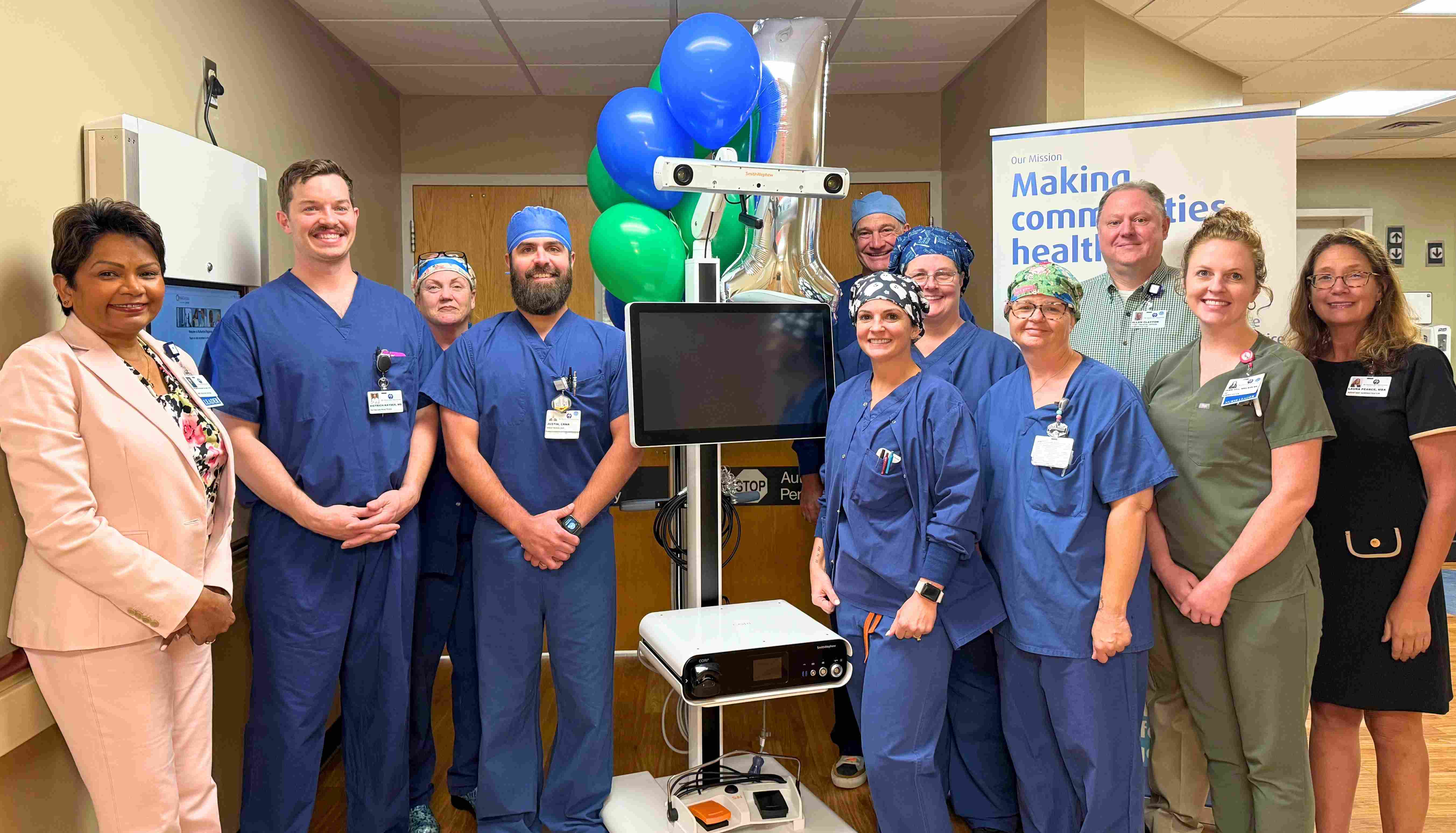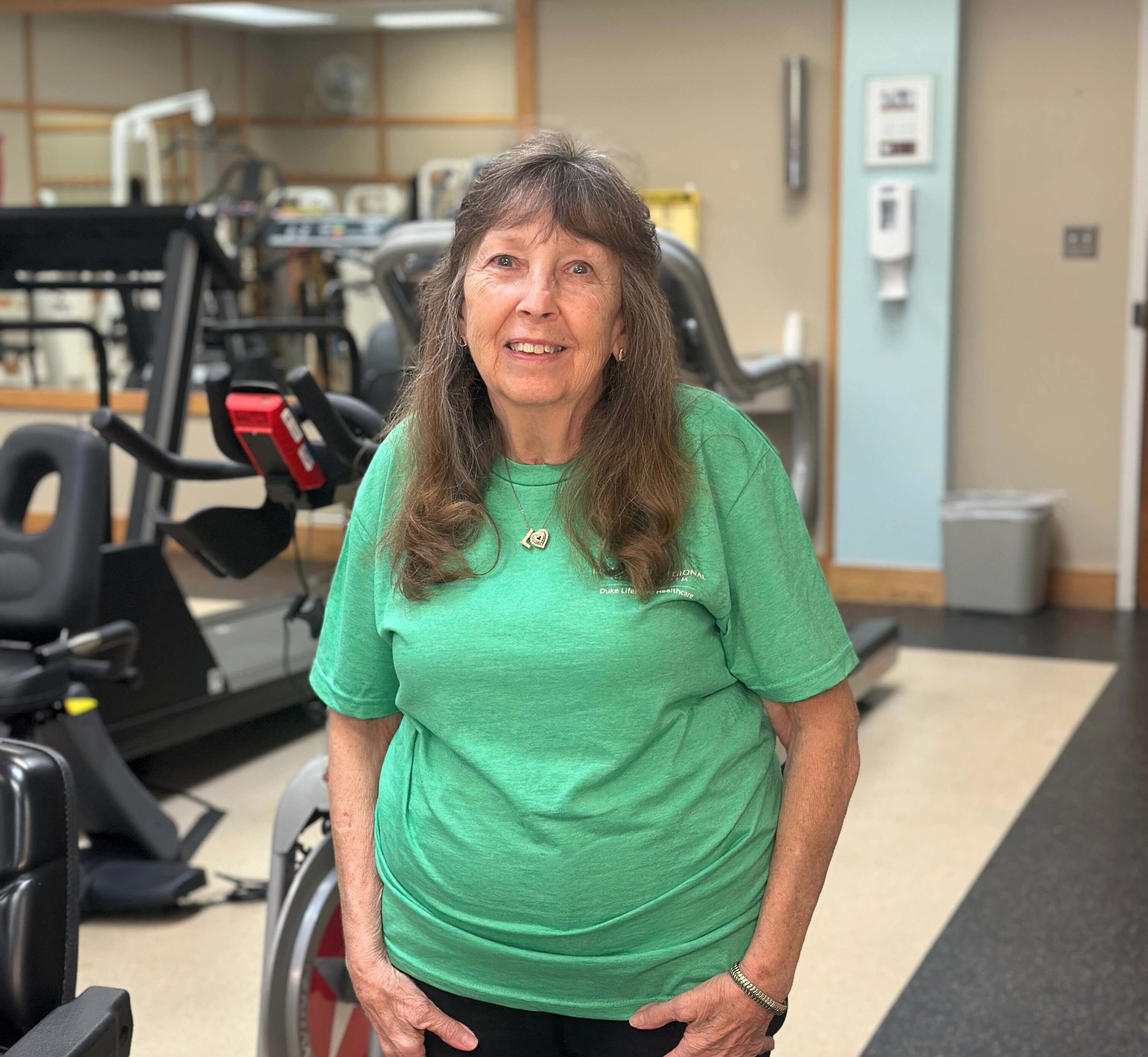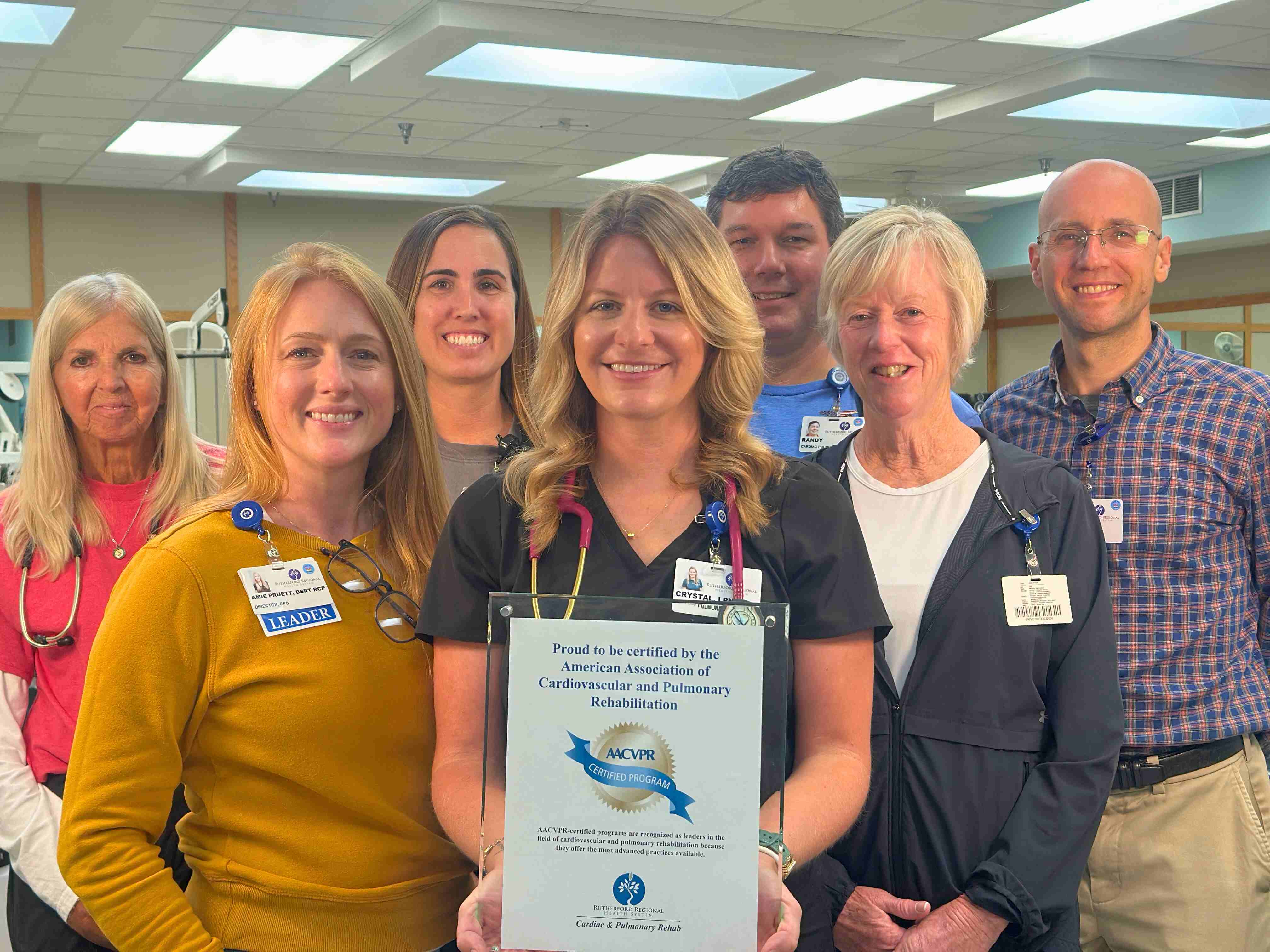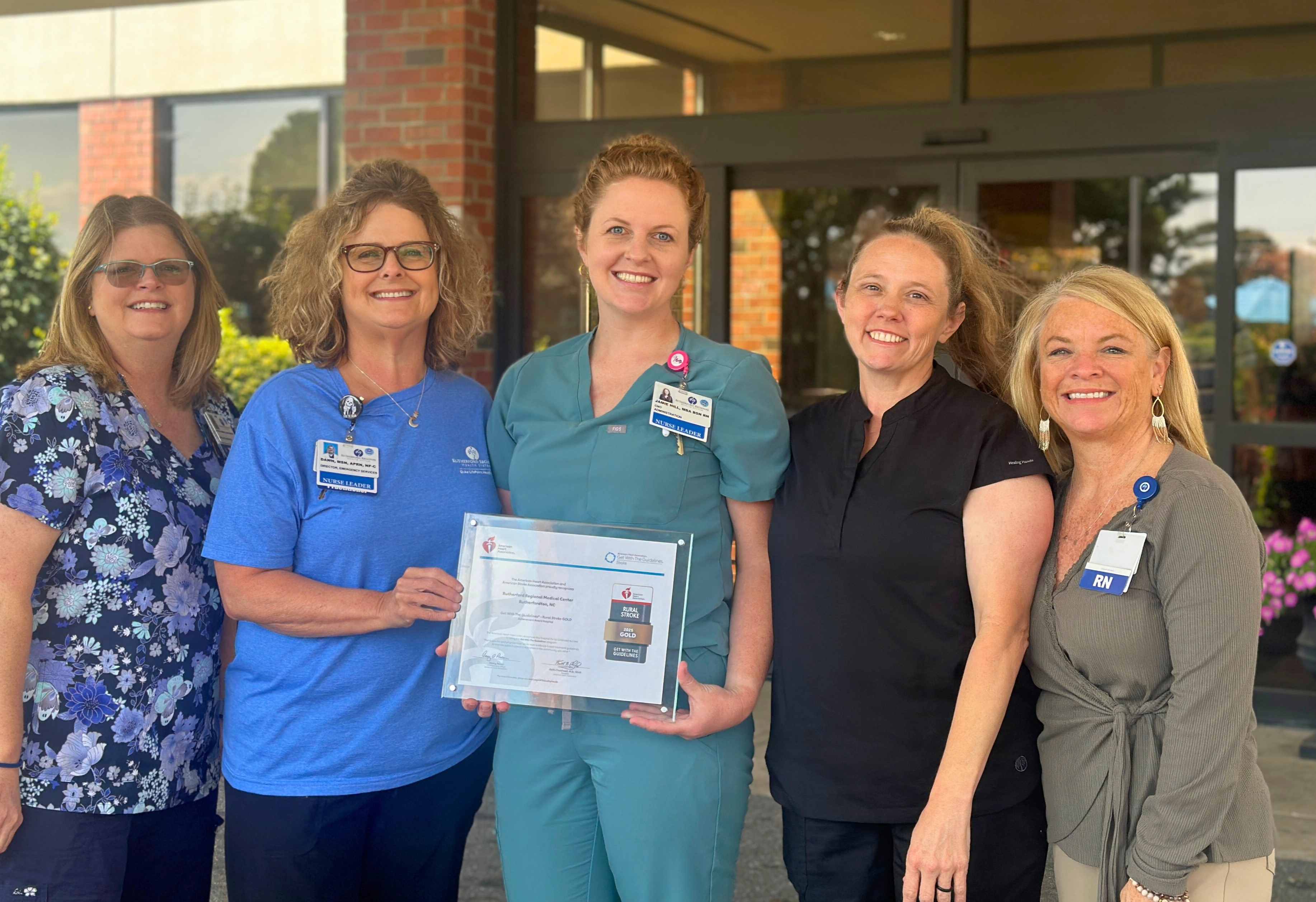News
-

Healthy Habits to Start in 2026 for Better Overall Health
January 19, 2026The beginning of a new year offers a natural opportunity to reassess your health and build habits that help you feel better and stay healthier over time. While big resolutions can feel overwhelming or short-lived, the most effective changes usually come from small, sustainable strategies that are easier to maintain. In…
Learn more -

Rutherford Regional Welcomes First Baby of 2026
January 05, 2026On January 1, 2026, Stella and Trevor welcomed the first baby of the year at Rutherford Regional Medical Center, a healthy baby boy. The Birthplace team provided exceptional care, making this a memorable start to the new year for the family. Read the full press release and view photos here.
Learn more -

What Your Annual Blood Work Can Reveal About Your Health
December 22, 2025Your yearly blood work gives your provider information they can’t see during a physical exam, sometimes before you notice any symptoms at all. Blood work isn’t only for sick visits – routine lab work plays a key role in preventive care and long-term health. In Rutherfordton, North Carolina,…
Learn more -

You Can Help Stop the Spread – Safeguarding Our Community Against Measles
December 18, 2025Measles is highly contagious but preventable — and your child’s protection starts with vaccination. Our pediatricians at Rutherford Regional Health System share what families need to know to recognize symptoms, stay safe, and keep the community healthy. Learn more and find out how to schedule your child’s next appointment.
Learn more -
.jpg)
Is It a Cold, the Flu, or Something Else? How to Tell the Difference
November 25, 2025When your child starts coughing, sneezing, or running a fever, it can be hard to know what you’re dealing with. As the seasons change and kids head back to school or daycare, coughs and sniffles start making the rounds. Here in Rutherfordton, NC, that often leaves parents asking: is it just a cold, or something more serious like the flu, RSV, or…
Learn more -

Rutherford Regional Health System Achieves Healthgrades’ Top Honor for Specialty Care
November 14, 2025Rutherford Regional Health System has been named one of America’s 100 Best Hospitals for Joint Replacement by Healthgrades, placing it among the nation’s top performers for specialty care. The hospital also earned a Specialty Excellence Award and five-star ratings for total knee replacement, total hip replacement, stroke treatment, and GI bleed treatment. These recognitions highlight Rutherford Regional’s commitment to providing exceptional, high-quality care and outstanding patient outcomes close to home.
Learn more -

What Does Breast Cancer Look Like in Its Early Stages?
October 21, 2025Breast cancer is one of the most common cancers in women, and early detection can dramatically improve outcomes. But what does breast cancer actually look like in its earliest stages? It’s not always a visible lump – early signs can be subtle, and knowing what to watch for can make all the difference. Below are some common early signs and symptoms to be…
Learn more -

Rutherford Regional Celebrates Ribbon-Cutting for Intensive Outpatient Program
October 09, 2025Rutherford Regional Health System recently hosted a ribbon-cutting ceremony to celebrate its Intensive Outpatient Program, which expands access to behavioral health services for the community. The program provides structured, evidence-based treatment to support adults on their journey to recovery and improved mental wellness.
Learn more -

Rutherford Regional Completes First Robotic-Assisted Knee Replacement Surgery
October 02, 2025Rutherford Regional Health System is proud to announce the successful completion of its first robotic-assisted knee replacement surgery, performed by Dr. Dietrich Kayser. While this marks a first for our hospital, Dr. Kayser is highly experienced in robotic-assisted procedures, bringing advanced orthopedic care to our community. Using the CORI™ Surgical System, this innovative technology allows for greater precision, faster recovery times, and shorter hospital stays—offering patients a more advanced option for treating chronic knee pain.
Learn more -

Why You Shouldn’t Skip Your Annual Physical: Screenings That Save Lives
September 26, 2025Many people put off their annual physical, if they feel fine, there’s no urgent need to visit the doctor. But skipping your yearly check-up can mean missing the early signs of serious conditions that are often treatable if caught early. At Rutherford Regional Health System, we believe prevention is just as important as treatment. Your annual physical is a…
Learn more -

Finding Purpose After Heart Surgery: Lula’s Cardiac Rehab Journey
September 16, 2025After a complicated heart procedure, Lula joined Rutherford Regional’s Cardiac Rehab Program, finding support, purpose, and friendship while regaining strength and staying healthy.
Learn more -

Rutherford Regional Health Systems Cardiovascular and Pulmonary Rehabilitation Program Certified by Industry Leader
September 10, 2025Rutherford Regional Health Systems Cardiovascular and Pulmonary Rehabilitation Program Certified by Industry Leader
Learn more -

How to Protect Your Child from Fall Viruses like Flu, RSV, and COVID
September 03, 2025In warmer parts of the country like Rutherfordton, NC, respiratory virus season can begin as early as September and stretch well into the winter. With kids back in school, viruses like flu, RSV, and COVID-19 start spreading quickly – especially among young children whose immune systems are still developing. As a parent, you can take steps now to help…
Learn more -

Rutherford Regional Health System Expands Access to Family and Women’s Health Services
August 29, 2025Rutherford Regional Health System Expands Access to Family and Women’s Health Services
Learn more -

Rutherford Regional Welcomes Dr. Dietrich Kayser
August 05, 2025Rutherford Regional Health System announced that Dietrich Kayser, MD, has joined its staff and will be offering orthopedic services to patients throughout the county. Dr. Kayser brings extensive experience in orthopedic care, with a background in both military and civilian practice settings.
Learn more -
.jpg)
Why Mosquito-Borne Illnesses Are on the Rise — and How to Protect Yourself
August 01, 2025Warmer weather and standing water are fueling a surge in mosquito-borne diseases. Here’s what you need to know and how to prevent them.
Learn more -

Rutherford Regional Health System Awarded for Efforts to Improve Rural Stroke Care
July 23, 2025The American Heart Association’s Get With The Guidelines® - Stroke Rural Recognition Gold award recognizes efforts to address the unique health needs of rural communities.
Learn more -
.jpg)
Rutherford Regional Health System Re-accredited as a Chest Pain Center
July 08, 2025Rutherford Regional Health System provides emergency, lifesaving medical care in partnership with local first responders
Learn more -

Rutherford Regional Health System and UnitedHealthcare Reach New Agreement
June 02, 2025Following months of negotiations, we are pleased to share Rutherford Regional Health System has reached a new agreement with UnitedHealthcare.
Learn more -

Rutherford Regional Health System announces new Chief Executive Officer
May 27, 2025Rutherford Regional Health System, a Duke LifePoint facility, has announced the appointment of Sudandra Ratnasamy as its new chief executive officer, effective June 23.
Learn more
